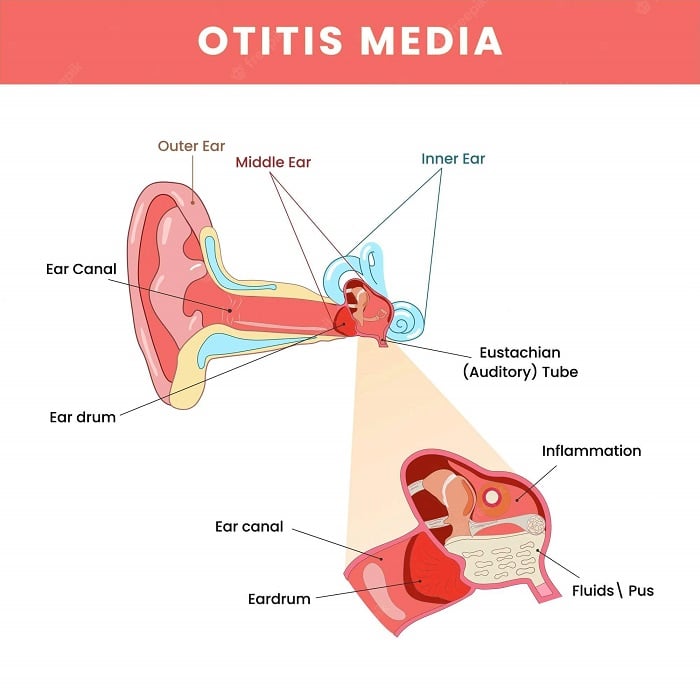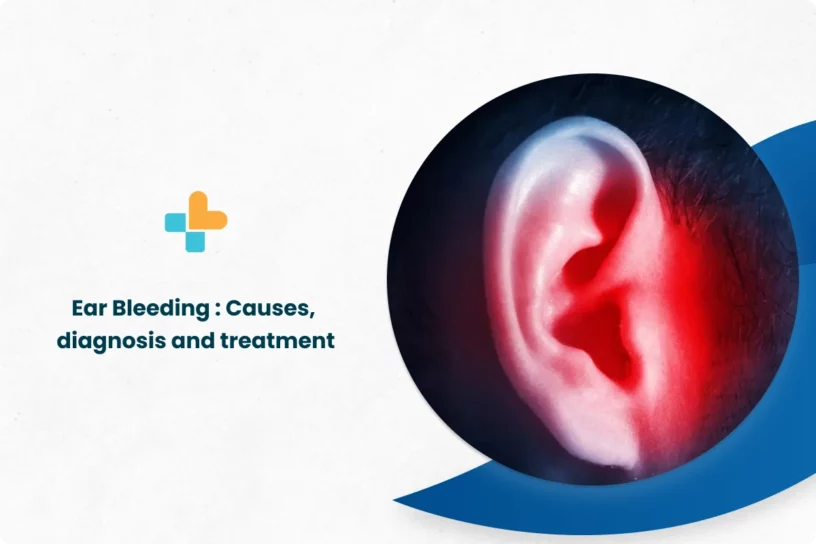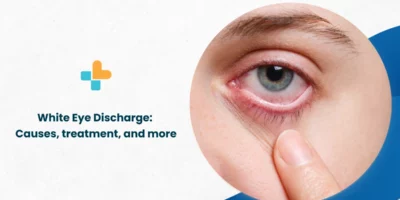Introduction
Ear bleeding, also known as otorrhagia, is the presence of blood coming from the ear canal. This can be a concerning symptom, as it can be caused by a variety of underlying conditions. It’s important to understand the potential causes of ear bleeding and to seek medical attention to receive a proper diagnosis and treatment.
What is ear bleeding?
Ear bleeding is the presence of blood coming from the ear canal. It can be caused by a variety of underlying conditions and can range from a minor issue to a life-threatening emergency. The blood may be visible as droplets or it may be mixed with earwax or discharge.

What causes ear bleeding?
Ear bleeding can be caused by a variety of underlying conditions, some of which are more serious than others. It’s important to understand the potential causes of ear bleeding in order to receive a proper diagnosis and treatment.
Ear Infection
An ear infection, also known as otitis media, can cause inflammation and bleeding in the ear. This can be caused by a bacterial or viral infection. The infection can cause the blood vessels in the ear to become inflamed and burst, leading to bleeding. Symptoms of an ear infection may include ear pain, discharge from the ear, and fever.
Object in the Ear
The presence of a foreign object in the ear can cause irritation, bleeding, and infection. This can occur if a person tries to remove earwax with a cotton swab or other object. In some cases, a person may not be aware that there is an object in the ear, and may only notice bleeding or discharge.
Changes in Air or Water Pressure
Changes in air or water pressure can cause bleeding in the ear. This can occur during diving or flying, when experiencing a rapid change in altitude. The pressure change can cause the blood vessels in the ear to burst, leading to bleeding. Symptoms may include ear pain, hearing loss, and dizziness.
Torn Eardrum
A torn eardrum, also known as a perforated eardrum, can cause bleeding and discharge from the ear. This can occur due to an injury or infection. The tear in the eardrum allows blood to leak from the ear canal. Symptoms may include ear pain, discharge from the ear, and hearing loss.
Head Injury
Head injuries can cause bleeding in the ear, especially if the injury is severe or if there is a skull fracture. The force of the injury can cause the blood vessels in the ear to burst, leading to bleeding. Symptoms may include ear pain, hearing loss, and dizziness. In more severe cases, the person may experience loss of consciousness, confusion, or difficulty speaking.
Cancer
Cancer in the ear or surrounding areas can cause bleeding. This is more likely in older adults or people with a history of cancer. Symptoms may include ear pain, bleeding, hearing loss, and changes in the appearance of the ear. In advanced stages, cancer may also cause fatigue, weight loss, and other symptoms.
It’s important to note that these are not the only causes of ear bleeding, and it’s best to consult a healthcare professional for proper diagnosis and treatment. Some other causes may include high blood pressure, blood clotting disorders, or even a side effect from medication.
What are the treatments for ear bleeding?
Treatment for ear bleeding will depend on the underlying cause. If the bleeding is caused by an ear infection, antibiotics may be prescribed. If the bleeding is caused by a foreign object in the ear, the object will be removed. If the bleeding is caused by a torn eardrum, the eardrum will be repaired. If the bleeding is caused by cancer, surgery, radiation therapy or chemotherapy may be necessary.
When to Call the Doctor
If you experience any bleeding from the ear, it’s important to seek medical attention immediately. Additionally, if you experience any hearing loss, dizziness, or severe pain, seek medical attention.
Conclusion
Ear bleeding is a concerning symptom that can be caused by a variety of underlying conditions. It’s important to understand the potential causes of ear bleeding and to seek medical attention to receive a proper diagnosis and treatment. Your healthcare provider will perform a physical examination and may order imaging tests to determine the cause of the bleeding. Treatment will depend on the underlying cause, but may include antibiotics, removal of a foreign object, surgery, or radiation therapy. It’s important to seek medical attention immediately if you experience any bleeding from the ear, hearing loss, dizziness, or severe pain. In some cases, ear bleeding can be a symptom of a serious condition, such as cancer, so early diagnosis and treatment is crucial. Additionally, it’s important to take steps to prevent ear bleeding by avoiding using cotton swabs or other objects to clean the ear, avoiding rapid changes in altitude, and protecting the head from injury. With proper diagnosis and treatment, most cases of ear bleeding can be resolved without complications.
FAQs:
Why would my ear be bleeding?
There are several potential causes of ear bleeding, including injury to the ear, infection, high blood pressure, or a bleeding disorder. It can also be caused by the use of certain medications or the insertion of a foreign object into the ear. It’s important to consult a healthcare professional to determine the cause of the bleeding and to receive appropriate treatment.
Should I be worried if my ear is bleeding?
If your ear is bleeding, it’s important to seek medical attention as soon as possible. While some causes of ear bleeding may not be serious, others can be life-threatening. Additionally, bleeding from the ear can be a sign of a more serious underlying condition.
How do you fix a bleeding ear?
Treatment for a bleeding ear will depend on the underlying cause. If the bleeding is caused by an injury, it’s important to apply pressure to the ear with a clean cloth to stop the bleeding. If the bleeding is caused by an infection or a foreign object, it’s important to see a healthcare professional to remove the object or to provide appropriate treatment. If the bleeding is caused by a bleeding disorder or high blood pressure, it’s important to see a healthcare professional to determine the cause and to receive appropriate treatment.
Introduction
Misophonia is a condition characterized by a strong emotional and physical reaction to specific sounds. People with misophonia experience an intense dislike or hatred of certain sounds, such as chewing, breathing, or tapping, and may have a strong urge to flee or attack the source of the sound. Although the condition is not well-known, it can have a significant impact on a person’s quality of life.
What is misophonia?
Misophonia is a condition characterized by a strong emotional and physical reaction to specific sounds. The term “misophonia” literally means “hatred of sound,” and it is also known as “selective sound sensitivity syndrome.” People with misophonia experience an intense dislike or hatred of certain sounds, such as chewing, breathing, or tapping, and may have a strong urge to flee or attack the source of the sound. The condition is not well understood, and it is not yet recognized as a separate disorder by the Diagnostic and Statistical Manual of Mental Disorders (DSM).
Symptoms of misophonia
Symptoms of misophonia can vary, but they typically include an intense emotional and physical reaction to specific sounds. Some common symptoms include:
- Anger or rage when exposed to certain sounds
- Anxiety or panic when exposed to certain sounds
- A strong urge to flee or attack the source of the sound
- Physical symptoms, such as increased heart rate or sweating
- Difficulty concentrating or completing tasks when exposed to certain sounds
Common misophonia triggers
Misophonia triggers can vary from person to person, but some common triggers include:
- Chewing or eating sounds
- Breathing or sniffing sounds
- Tapping or typing sounds
- Footsteps or other types of footsteps
- Certain types of speech, such as whispering or lip-smacking
What causes misophonia?
The exact cause of misophonia is not well understood, but it is believed to be related to how the brain processes certain sounds. Some researchers believe that misophonia may be related to an overactive fight-or-flight response to certain sounds. Other theories suggest that misophonia may be related to an imbalance in the brain’s emotional processing centers.
How is misophonia treated, and is there a cure?
Currently, there is no known cure for misophonia, but there are several treatment options that can help manage symptoms and improve quality of life.
Tinnitus retraining therapy (TRT)
TRT is a type of therapy that aims to reduce the emotional response to certain sounds by gradually exposing the person to the sounds they find distressing. This can help to desensitize the person to the sound over time and reduce their emotional reaction to it.
Counterconditioning
This type of therapy involves teaching the person to associate a positive or neutral feeling with the sounds they find distressing. This can help to change their emotional response to the sound over time.
Coping strategies
Learning coping strategies such as relaxation techniques, mindfulness, or deep breathing can help a person better manage their emotional response to certain sounds.
Counseling
Counseling, such as cognitive-behavioral therapy, can help a person understand their condition and develop coping strategies.
Medication
While there is no medication specifically for misophonia, some people may benefit from medication to manage their symptoms such as antidepressants or anti-anxiety medication.
Conclusion
Misophonia is a condition characterized by an intense emotional and physical reaction to certain sounds. While there is no known cure, various treatment options, including Tinnitus Retraining Therapy, counterconditioning, coping strategies, counseling, and medication, can help manage symptoms and improve quality of life. If you think you may have misophonia, it’s important to consult with a healthcare professional to receive an accurate diagnosis and appropriate treatment.
Our Hospital Locations
ENT Surgery Hospitals in Chandigarh | ENT Surgery Hospitals in Bangalore | ENT Surgery Hospitals in Jaipur | ENT Surgery Hospitals in NCR | ENT Surgery Hospitals in Hyderabad
Our Doctors
ENT Surgery Doctors in Chandigarh | ENT Surgery Doctors in Bangalore | ENT Surgery Doctors in Jaipur | ENT Surgery Doctors in NCR | ENT Surgery Doctors in Hyderabad
About the Author

Dr. S. Goel
Dr. S. Goel is a renowned Internal Medicine Specialist currently practicing at Ayu Health, Bangalore. He is a Specialist in Internal Medicine, Diabetes HTN, Paediatric Care, and Family Medicine.




